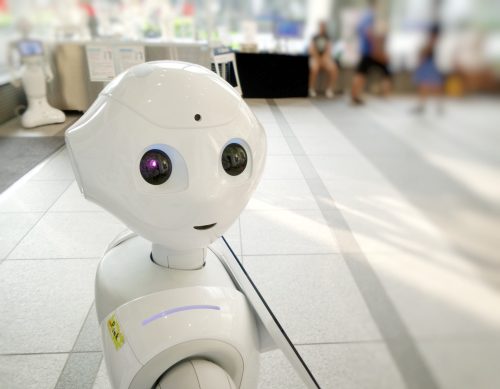By Kathy Underwood, EIM Manager
Artificial Intelligence (AI) was coined by Marvin Minsky in 1956 at Dartmouth College. The idea behind AI was to determine how to teach the computer to learn and make decisions like the human brain. In the many years since then, scientists have begun to realize we may not be able to emulate the brain since it’s unclear exactly how the human brain operates. Therefore, the definition and views of AI have evolved over the years.

In many organizations, AI is used to augment humans and allow computers to perform functions to make overall processes more efficient. Technology has been doing this for years by building applications and business intelligence to help the organizations — so why is this so different? The technology leap is founded in a few key areas:
- Storage has become more cost-effective, allowing organizations the ability to gather more data than ever before
- Cloud on-demand processing power has allowed organizations access to more powerful computer resources
- Technology has made many advances in teaching computers to learn
Armed with data and learning computers, AI comes in different forms of technology and has much to offer:
AI Assistants
Chatbots are AI assistants who interpret language and answer common questions, allowing people to handle the more complex tasks. We all know the at-home AI assistants — Alexa and Google Home — that help us every day. In the business world, these can be customized to help with business related tasks. Chatbots can assist in a more human way and with the advances in natural language processing domain of AI, these chatbots can be taught to interpret questions written in the specific way, or language, a person will ask it. Websites utilize chatbots for technical support, medical questions and online shopping.
People, Places, Things
Image Recognition is another form of AI that most people know about. Think about your phone and how it unlocks with facial recognition — this is an AI algorithm to determine if the face the camera sees is the same person as the one previously saved. The computer model is trained with millions of photos that can understand the different facial features — hair styles, glasses/no glasses, lighting — of a person. All of this is done with data training for pattern recognition and then the use of pattern matching to decide accuracy. This helps businesses with security, manufacturing with inspections techniques and intrusion detection.
Making Predictions
Machine Learning (ML) is another domain of AI. ML is computer learning from patterns in data as opposed to the traditional rules-based techniques of the past. It allows a more accurate prediction of outcomes without being programmed to do so. Machine learning trains a computer to review your historical data and features, look for patterns and provides new, fresh information to predict sales, buying behaviors and overall analysis. The benefit for the business is the computer can look at large volumes of data and many different features in a fraction of the time it would take a person to do the same analysis.
As you can see there are many different business applications for AI. They key to successfully utilizing AI in your company is data, data and more data! The higher quality data you have to train the computer, the better your outcome will be. Good luck on your AI adventure — it can be quite fun and informative.
To learn more about Bisk and what we do, click here.
